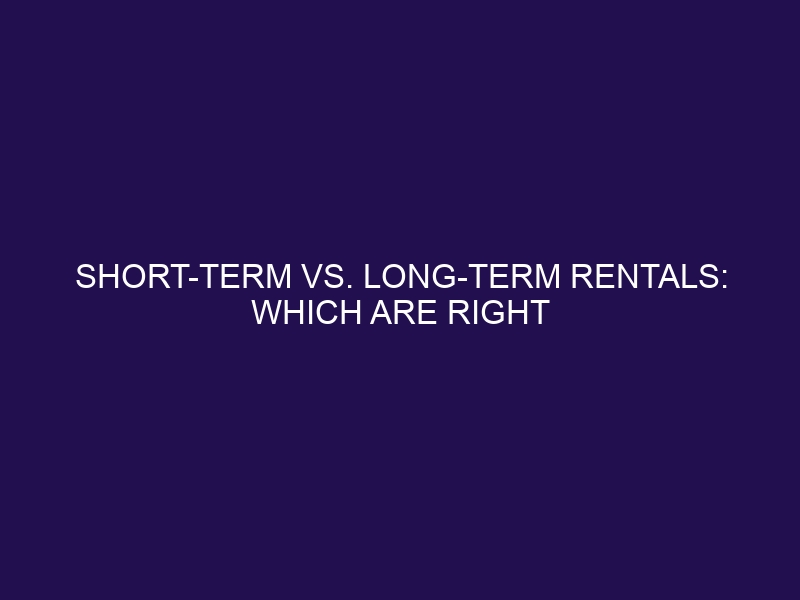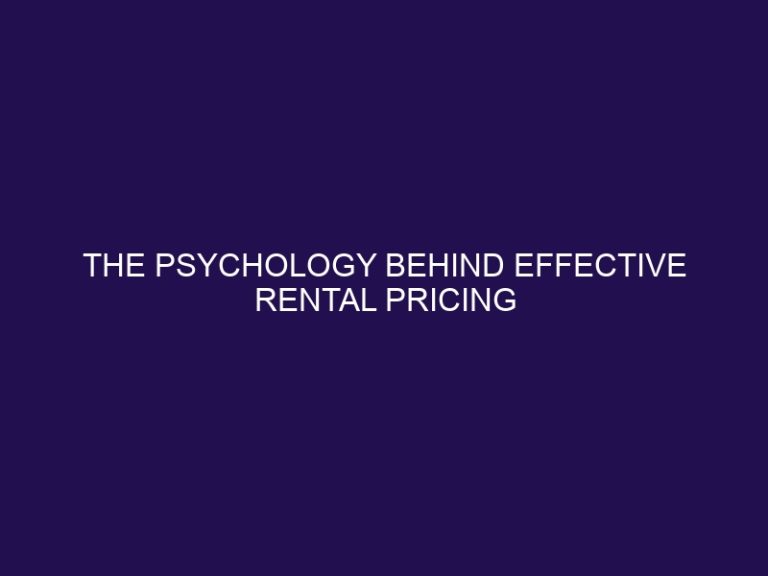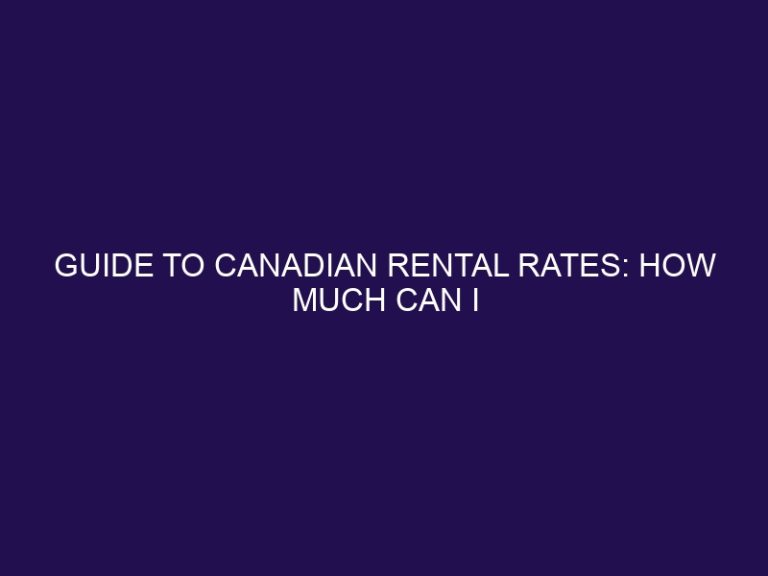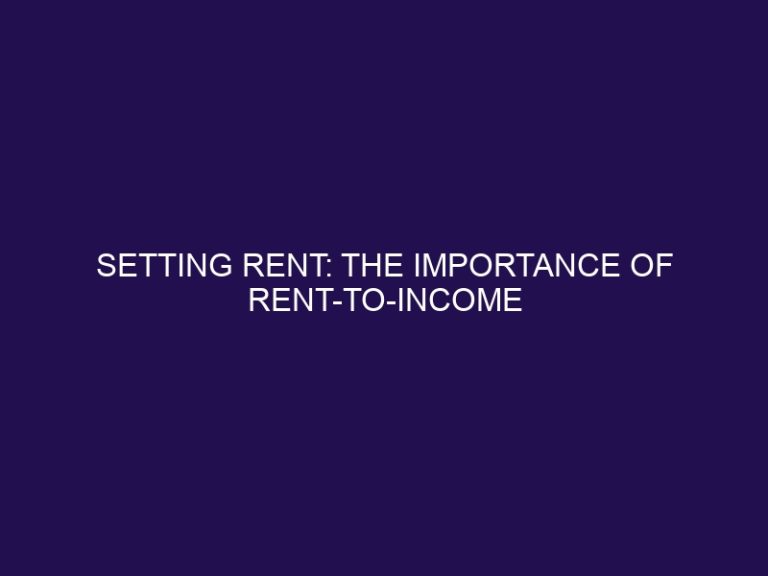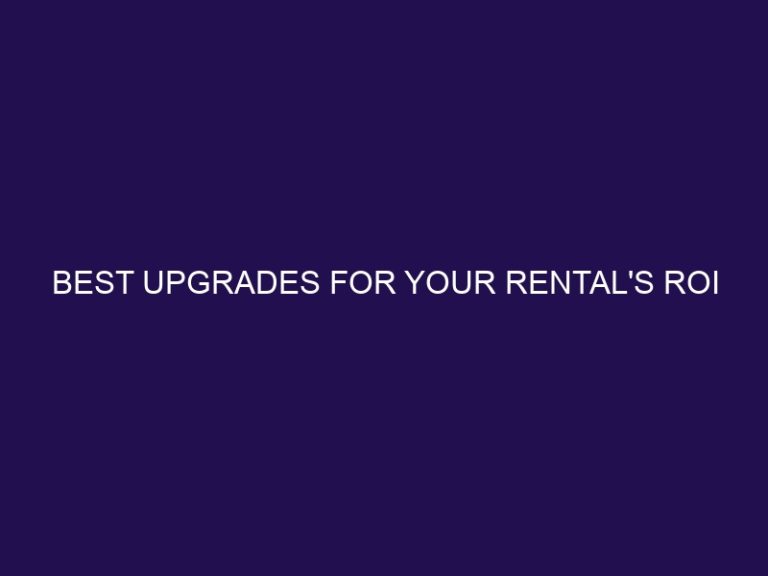Short-term vs. long-term rentals: which are right for you?
Short-term and long-term rentals are two popular options for accommodation, each with their own advantages and drawbacks. To make an informed decision about which option is right for you, it is important to understand the key differences between them and consider various factors. In this article, we will explore the definitions, durations, pros, and cons of both short-term and long-term rentals. we will discuss factors such as duration of stay, cost, flexibility, amenities, and legal considerations that can help you determine which type of rental is most suitable for your needs. By the end, you will have a clearer understanding of whether short-term or long-term rentals align better with your preferences and requirements.
Understanding Short-term Rentals
Discover the world of short-term rentals and unlock a convenient and flexible way of accommodation. In this section, we’ll dive into the ins and outs of short-term rentals, exploring their definition, duration, as well as the pros and cons they offer. From the freedom to explore new destinations without commitments to potential limitations, we’ll uncover the factors that can help you determine if short-term rentals are the perfect fit for your travel needs. Get ready to embark on a journey of convenience and possibilities.
Definition and Duration
Long-term rentals and short-term rentals have different definitions and durations. Short-term rentals refer to the practice of renting a property for a short period, usually less than 30 days. On the other hand, long-term rentals involve renting a property for an extended duration, typically more than 30 days.
The duration of a short-term rental allows for flexibility and is ideal for travelers and those needing temporary accommodation. In contrast, long-term rentals provide stable housing arrangements for individuals seeking a more permanent solution.
Factors such as the duration of stay, cost, flexibility, amenities, and legal considerations should be considered when deciding between short-term and long-term rentals.
Pros of Short-term Rentals
Short-term rentals offer several benefits for travelers and property owners alike. These are the pros of short-term rentals:
- Flexibility: Short-term rentals allow for flexibility in terms of duration, allowing travelers to adjust their stay according to their needs.
- Income potential: Property owners can earn additional income by renting out their property on a short-term basis, especially in high-demand areas.
- Higher rental rates: Short-term rentals often command higher rental rates compared to long-term rentals, providing an opportunity for increased profitability.
- Minimal long-term commitment: Renters enjoy the convenience of not being tied down to a long-term lease, providing them with more freedom and options.
- Personal use: Property owners can still utilize their property for personal use when it’s not being rented, allowing them to enjoy their investment.
For example, Sarah listed her spare room on a short-term rental platform while she was away. Not only did she earn extra income, but she also had the flexibility to return home whenever she wanted. The experience was hassle-free, and she even made new friends through hosting.
Cons of Short-term Rentals
Short-term rentals, also known as vacation rentals, provide a great deal of flexibility and convenience for travelers. However, it is essential to consider the cons of short-term rentals before making a decision.
One of the primary drawbacks of short-term rentals is the inconsistent income they can generate. As the income from these rentals fluctuates, it becomes challenging to predict a steady stream of revenue.
Another disadvantage is the higher expenses associated with short-term rentals. Compared to long-term rentals, short-term rentals often require more maintenance and cleaning, which can significantly increase expenses.
Additionally, regulatory challenges can pose a significant issue when considering short-term rentals. Some cities have strict regulations in place that must be followed, and failure to do so can result in legal issues or fines. It is crucial to thoroughly research and understand the regulations in your area before embarking on a short-term rental venture.
Lastly, a risk of damage must be taken into account. The frequent turnover of guests in short-term rentals increases the likelihood of damage to the property. It is essential to have thorough inspection protocols in place to protect your investment.
When considering short-term rentals, it is important to weigh these cons alongside the benefits to make an informed decision that aligns with your goals and circumstances.
Understanding Long-term Rentals
Long-term rentals, a popular choice in the housing market, offer a range of benefits and drawbacks worth exploring. In this section, we’ll delve into the world of long-term rentals, uncovering their definition and duration, as well as the pros and cons they bring to the table. From stability to potential cost savings, understanding the ins and outs of long-term rentals will equip you with the knowledge needed to make an informed housing decision that aligns with your needs and preferences. Let’s dive in!
Definition and Duration
Definition: Short-term rentals, also known as vacation rentals or holiday rentals, encompass the practice of renting out a property for a brief period, typically less than 30 days. On the other hand, long-term rentals refer to the leasing of a property for an extended duration, usually six months or more.
Duration: Short-term rentals offer a convenient and flexible option for travelers or individuals seeking temporary accommodations. These rentals can be a favorable choice when your stay is brief and doesn’t exceed a month. However, they may come with challenges such as fluctuating availability and higher costs per night.
On the contrary, long-term rental agreements provide stability and often come with lower costs. They are suitable for those looking to reside in a property for an extended period, typically spanning over six months or longer. However, unlike short-term rentals, long-term leases generally lack the same level of flexibility.
When deciding between short-term and long-term rentals, it is essential to consider various factors. These include the duration of your stay, the overall cost involved, the level of flexibility required, the available amenities, as well as the legal considerations that accompany each option. Ultimately, the choice between these two options depends on your specific needs and preferences.
Pros of Long-term Rentals
Long-term rentals offer several advantages for individuals seeking stability and consistency in their housing arrangements. Some key pros of long-term rentals, or the benefits they provide, include:
- Stability: Long-term rentals provide a sense of permanence, allowing tenants to establish roots in a community and build relationships with neighbors.
- Cost savings: Compared to short-term rentals, long-term rentals often offer lower monthly rates, allowing tenants to save money over an extended period of time.
- Flexibility: Long-term leases provide tenants with the flexibility to customize and personalize their living space according to their needs, without the restrictions often found in short-term rentals.
- Amenities: Many long-term rental properties come with a range of amenities, such as access to gyms, pools, and common areas, enhancing the overall living experience.
- Legal protection: In long-term rentals, tenants benefit from legal protections, including tenant rights and eviction laws, which provide a greater level of security and recourse in case of disputes or issues.
Considering these pros, it is clear that long-term rentals are a suitable option for individuals seeking stability, cost savings, flexibility, access to amenities, and legal protection in their housing arrangements.
Cons of Long-term Rentals
The article examines the disadvantages of long-term rentals, providing a comprehensive analysis of the cons associated with choosing this housing option. The cons of long-term rentals encompass limited flexibility for relocation, the possibility of rental rate increases over time, diminished control over property maintenance, and reduced access to amenities. Opting for long-term rentals may entail longer lease commitments, which can pose challenges in adapting to changes in personal or professional circumstances. However, despite these drawbacks, long-term rentals provide stability, a sense of community, and potential cost savings when compared to short-term rentals. Ultimately, the decision between short-term and long-term rentals depends on individual preferences and specific needs.
Factors to Consider in Choosing Between Short-term and Long-term Rentals
When deciding between short-term and long-term rentals, several key factors come into play. We’ll explore these factors that can help you make the best choice for your specific needs. From the duration of your stay to the cost, flexibility, amenities, and legal considerations, each sub-section will shed light on crucial aspects that can greatly impact your rental decision. So, let’s dive in and uncover the factors you need to consider before choosing between short-term and long-term rentals. Get ready to make an informed choice!
Duration of Stay
The duration of your stay is a crucial factor to consider when deciding between short-term and long-term rentals.
- Short-term rentals are typically for a few days up to a few months, making them ideal for vacations or business trips, depending on the duration of your stay.
- On the other hand, long-term rentals are more suitable for extended stays, such as relocation or studying abroad, where the duration of your stay will be longer.
- It is important to consider the flexibility of your plans – if you need the freedom to move around frequently, short-term rentals may be a better choice for the duration of your stay.
- If you’re looking for stability and a sense of home, long-term rentals provide a more settled living situation, irrespective of the duration of your stay.
Sarah, a digital nomad, preferred short-term rentals as she frequently traveled for work. She found it easier to book temporary accommodations that suited her travel duration and allowed her to experience different cities. When she decided to settle in one location for a longer period, she opted for a long-term rental to establish a sense of community and stability based on the duration of her stay.
Cost
Cost is an important factor to consider when choosing between short-term and long-term rentals. Here is a breakdown of the cost differences between the two options:
| Short-term Rentals | Long-term Rentals | |
|---|---|---|
| Upfront | Higher upfront costs such as security deposits and cleaning fees. | Lower upfront costs like security deposits and minimal or no fees. |
| Rent | Generally, higher daily or weekly rental rates. | Generally, lower monthly rental rates. |
| Utilities | Typically, utilities are included in the rental price. | Tenants are usually responsible for paying utilities separately. |
| Furnished | Often comes fully furnished, eliminating the need to purchase furniture. | Unfurnished, requiring tenants to furnish the space at their own expense. |
| Flexibility | Provides flexibility to rent for short periods without a long-term commitment. | Requires signing a lease for an extended period, offering stability. |
Considering the cost implications can help you determine which option aligns better with your budget and preferences.
Flexibility
Flexibility is a crucial factor to consider when choosing between short-term and long-term rentals. Here are some key points to help you understand the importance of flexibility:
- Short-term rentals offer the flexibility to stay for a shorter duration, making them ideal for travelers, temporary work assignments, or those uncertain about their long-term plans.
- Long-term rentals provide greater stability and consistency, giving tenants the flexibility to settle down and establish a sense of belonging in a community.
- Short-term rentals allow for more spontaneity and freedom to explore different locations, while long-term rentals offer the opportunity to establish roots and build lasting connections.
- Flexibility with lease terms is more common in short-term rentals, allowing tenants to adjust their housing situation to changing needs and circumstances.
- In long-term rentals, lease agreements typically have stricter terms, offering less flexibility in terms of moving out or altering the living arrangement.
Considering your specific needs and future plans will help determine which type of rental provides the desired level of flexibility for your lifestyle.
Amenities
Amenities play a crucial role in deciding between short-term and long-term rentals. Consider the following factors:
- Facilities: Short-term rentals often offer fully furnished spaces with amenities like a fully equipped kitchen, laundry facilities, and parking.
- Services: Long-term rentals may provide regular maintenance, concierge services, and access to common areas like a gym or pool.
- Location: Look for rentals near amenities like grocery stores, restaurants, and public transportation for convenience.
- Security: Evaluate the safety features of the property, such as CCTV cameras, secure entrances, and burglar alarms.
- Technology: Check for amenities like Wi-Fi, smart home features, and entertainment systems that enhance your comfort and convenience.
Legal and Regulatory Considerations
Legal and regulatory considerations play a vital role in the decision-making process between short-term and long-term rentals. It is essential to take into account several crucial factors:
| 1. Permit Requirements | Short-term rentals frequently necessitate special permits or licenses from local authorities, while long-term rentals generally have fewer regulations to comply with. |
| 2. Rental Agreements | When it comes to short-term rentals, it is common to encounter detailed agreements that outline rental terms, fees, and cancellation policies. In contrast, long-term rentals typically involve more standardized lease agreements. |
| 3. Zoning Laws | In certain areas, there are zoning restrictions or ordinances that limit or prohibit short-term rentals. Therefore, comprehending the local regulations is of utmost importance. |
| 4. Taxes | Short-term rentals may require hosts to gather and submit taxes, such as occupancy taxes or tourist taxes, while long-term rentals often have dissimilar tax obligations. |
| 5. Insurance Coverage | For short-term rentals, hosts may need to acquire additional liability insurance to protect both themselves and their guests. Conversely, long-term rentals may involve different considerations regarding insurance coverage. |
Frequently Asked Questions
Short-term vs. long-term rentals: which are right for you?
Considering the keywords ‘easier management, short term vacation properties, sitting vacant, cash flow, residential real estate investments, light bulbs, tenants responsibility, short term rental, personal preference, individual securities, unique benefits, rental income, wear and tear, booking short term guests, comfort level, real estate, generate income, long term vacation rental, market conditions, real estate investments, online real estate class, resident turnover, property management firm, pest control, personal vacation use, price adjustment, mutual funds, less maintenance, short term rentals, long term vacation rentals, property type, long term rentals, riskreward balance, investing in real estate’, here are 6 unique FAQs and answers:
1. What are the benefits of investing in short-term vacation rental properties?
Investing in short-term vacation rental properties can provide several unique benefits. Firstly, you have the flexibility to use the property for personal vacations whenever you desire. Additionally, the property experiences less wear and tear as it is occupied less frequently. Short-term rentals also offer the opportunity to earn higher overall rental income and the ability to adjust prices based on market conditions.
2. What advantages does long-term vacation rental property offer?
Long-term vacation rentals provide stability and consistent rental income. With long-term tenants, you can expect predictable income and fewer turnovers, resulting in lower vacancy periods. These properties also require less maintenance, as tenants are typically responsible for regular upkeep tasks. Although personal use may be limited, it ensures a steady cash flow and reduced management responsibilities.
3. How does the risk-reward balance differ between short-term and long-term rentals?
The risk-reward balance varies between short-term and long-term rentals. Short-term rentals have the potential to generate higher income due to flexible pricing and increased demand during peak periods. However, this comes with the risk of the property sitting vacant if there is a lack of short-term bookings. On the other hand, long-term rentals offer more stability and consistent income, but with potentially lower overall returns.
4. How can I ensure the maintenance and upkeep of short-term rental properties?
Short-term rental properties typically receive regular, professional-level maintenance due to more frequent tenant turnover. This ensures that the properties are well-maintained, with prompt cleaning and repairs as needed. As a landlord, you can also establish clear guidelines and expectations for tenants regarding their responsibilities in maintaining the property, such as changing light bulbs and pest control.
5. What factors should I consider when choosing between short-term and long-term rentals?
When deciding between short-term and long-term rentals, it is essential to consider market conditions, your personal preference, and your investment goals. Assess factors such as the comfort level with management requirements, income stability, the degree of personal use you desire, and the type of property you are investing in. By evaluating these aspects, you can make an informed decision that aligns with your objectives.
6. Are there any advantages to investing in long-term rentals from a property management perspective?
Long-term rentals offer advantages from a property management perspective. These properties generally require less attention and have lower turnover rates, resulting in reduced workload and management fees. The longer lease terms also contribute to a more predictable rental income stream, minimizing the chances of the property remaining unoccupied. Additionally, tenants are usually responsible for regular maintenance tasks, further reducing the landlord’s management responsibilities.

